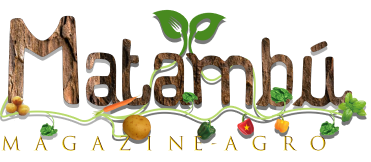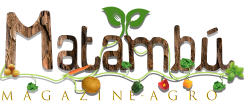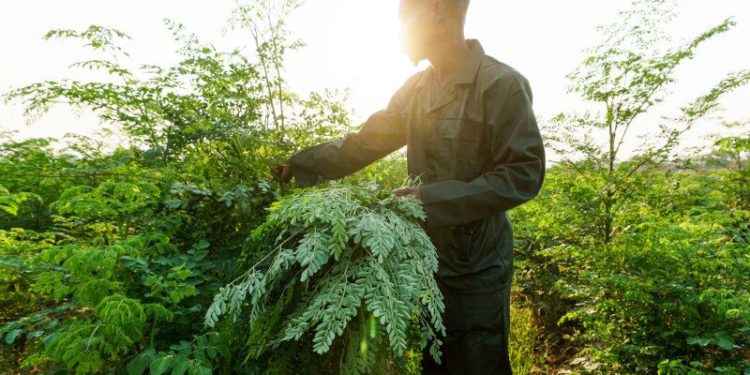[ad_1]
Moringa Initiative grows moringa on a farm exterior Lusaka, Zambia.
Moringa Initiative, based in 2013 in Zambia by Evan and Bernice Kilburn, has established itself as a considerable worldwide bulk provider of dried moringa leaves in addition to branded merchandise that include the nutritious superfood. The firm grows moringa on the household farm exterior of Lusaka and processes the dried leaves into seed oil, tea, powder and capsules. In 2018, Moringa Initiative opened a department in Durban, South Africa, headed by the Kilburn’s daughter Natasha and her husband Lloyd Abernethy. Jaco Maritz speaks to him about their progress path, totally different gross sales channels and the traits linked to health and superfoods which can be boosting income.
Venturing into a brand new crop
The Kilburns had been efficiently farming in Zambia with numerous crops when moringa was talked about in an informal dialog again in 2012. The couple did some analysis and, wowed by the dietary advantages of the superfood and motivated by their business dream of venturing into agri-processing, employed numerous smallholder farmers to domesticate the crop on among the out there land on their farm. They additionally registered a brand new business, Moringa Initiative.
The Zambian local weather lends itself to the rising of moringa, a hardy crop that prefers considerably sizzling and dry circumstances. It was potential to go from planting to completed product in simply over a yr.
During these 12 months, Moringa Initiative constructed drying and processing models. For the farmers it employs, the corporate supplied housing, a creche and a clinic on its property.
Dry with care
Abernethy says moringa requires a rigorous drying course of to make sure a top quality end-product.
“It is a finicky crop in terms of the bacteria, yeast and mould that can be found within the leaf,” he explains. “However, if harvested and dried correctly, you can rid yourself of those complications.”
The firm may faucet into Evan Kilburn’s expertise as a tobacco farmer – the place the crop has to endure the same course of – when it constructed its customized drying unit. “After harvest, the moringa is dried at a specific temperature for a precise time to get the nutrients at a perfect level. This controls the humidity and the moisture within the leaves.”
The dried leaves then undergo numerous processes, relying on the ultimate product, earlier than it’s packaged and distributed.

The firm’s moringa capsules are standard in South Africa.
Explain the product first, then persuade to purchase
Today, the dietary advantages of moringa are fairly well-known, however when Moringa Initiative had its first merchandise prepared on the market it was a unique story. Abernethy says a part of their advertising drive continues to be aimed toward educating the patrons of its health qualities.
“Moringa is a niche item; in the beginning, it was difficult to convince retail buyers to stock it. We did have the benefit of novelty because it was so unique and brand new; it at least piqued interest and we had some early successes.”
Slowly however absolutely, the branded merchandise made it onto the cabinets of health shops and pharmacies, and ultimately giant retailers as properly. Today, Moringa Initiative might be discovered in Spar and Pick n Pay in Zambia and South Africa, with further listings in Shoprite and Choppies in Zambia.
In phrases of the most well-liked objects, Abernethy explains it is rather depending on the geographic location. “In Zambia, our range of teas is the most popular: the lemon and ginger, apple and cinnamon, pure moringa and lemon grass,” he says. “In South Africa, the capsules sell really well and when it comes to the health stores, our 100g bags of pure moringa powder are popular.”
Wholesale as a recreation changer
Although Moringa Initiative’s most important goal was all the time the creation of a retail model, it has discovered important traction in the wholesale market, which now accounts for the majority of its income.
“Putting a product into retail does come with significant costs: packaging, distribution, advertising and marketing. It helped once we shifted to wholesale where these costs are lower and the income could supplement spend on the retail end,” says Abernethy.
Over time, the corporate realised its core energy lay in its main agriculture manufacturing capabilities and that wholesale provide is a viable and sustainable earnings stream. “The Zambian and South African markets are only so big. We’ve now established good partnerships for wholesale in the US and EU.”
The firm sells to moringa manufacturers that purchase the leaves and then course of and bundle underneath their very own label. Food and beverage improvement corporations and pet meals manufactures additionally procure wholesale from Moringa Initiative.

Moringa Initiative produces a spread of moringa-based teas.
E-commerce post-Covid-19
Moringa Initiative has its personal e-commerce web site and, in South Africa, it’s also out there on Takealot.com. While it positioned its product on this digital market from when it began promoting in the nation, the pandemic lockdowns actually pushed on-line gross sales.
“It picked up immensely and hasn’t slowed at all,” Abernethy reveals. “Brick and mortar stores still bring in 60% of our retail sales, but online has already picked up to 40%. This growth surprised us, to be honest, we didn’t realise there was so much scope for growth and sales on an online platform in South Africa.”
Riding the health and superfood wave
Moringa Initiative needs a share of the expansion the superfoods trade is experiencing and is even contemplating increasing to different crops.
“At the moment, we have put all of our eggs in one basket, but we have been testing some of the others, like chia – which we have planted on the farm – and stevia. We don’t want to jump into anything else too soon. We want to make sure we’ve established our moringa products first.”
Another trend that advantages the corporate is that fashionable shoppers are actively in search of the backstory of the product and the model. “When they are drinking moringa tea, they are interested in where it was grown and harvested and what the journey from sowing to shelf looked like. We aspire to being seen as a clean-label product: organic, GMO-free, no pesticides, no chemicals,” Abernethy says.
Moringa Initiative can be receiving its natural certification quickly, a transfer that resulted from a commerce truthful in the US, which the workforce attended in 2019 in search of export markets for its branded items. “The main takeaway was that no one in the EU or US was interested unless our product was organically certified. Getting this in place will really help us,” he provides.
Moringa Initiative director Lloyd Abernethy’s contact data
Contact particulars are solely seen to our Monthly/Annual subscribers. Subscribe right here.
Related articles
[ad_2]
Source link










